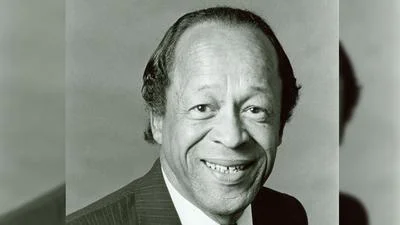Before the recently passed budget, Illinoisans could at least point to their 3.75 percent state income tax rate as being relatively low, even if their property taxes are relatively high, a policy pro said on a Chicago-based radio program recently.
"In Illinois, the average property owner is paying about 2 percent of the value of their home in property taxes every single year," Jared Walczak, a senior policy analyst with the Tax Foundation's Center for State Tax Policy, said on "Illinois Rising." That's the third highest in the country. Even states that forego a major tax have lower property taxes."
The Tax Foundation is a Washington-based tax policy nonprofit that analyzes tax policies at the state and federal levels.

Jared Walczak, a Senior Policy Analyst with Tax Foundation's Center for State Tax Policy
Illinois Rising is co-hosted by Illinois Opportunity Project co-founder Dan Proft, a principal of Local Government Information Services, which owns this publication.
Illinois' median property tax rate is among the highest in the nation, and the taxes are especially high in the so-called "collar counties" around Chicago. Homeowners there pay the highest property taxes in the state, with Lake and DuPage residents paying the state's highest and second-highest property taxes, respectively, and the nation's 21st- and 27th-highest in the nation, respectively. McHenry, Kane and Will counties rank fourth-, fifth- and sixth-highest in median effective property tax rates in the state, respectively.
Now residents also have to pay 32 percent more in income tax. As of July 1, personal state income taxes went from 3.75 to 4.95 percent from 3.75 percent. Corporate taxes also jumped, from 5.25 percent to 7 percent.
Many property owners, even those whose rates are high, are concerned about reduction in school funding should their taxes be reduced, but Walczak said that should not be their focus.
"There are a lot of states where local property taxes are a significant or even the primary form of funding for schools and yet you don't often see the property taxes that are experienced in Illinois," he said. "You also see, frequently, that property taxes are highest in the areas that arguably have less need for that sort of school-related funding. You see, for instance, the very high property tax rates in the outer circle outside of Chicago. Those are not necessarily the areas that are struggling on education."
Illinois needs to make more progress in education, but that doesn't generally justify high property tax rates, Walczak said.
"There's a lot that can be done on education, certainly," he said. "Illinois needs to make further strides on education policy. A lot of that doesn't necessarily come down to additional funding. The important thing to recognize is most other states, even those that rely upon almost exclusively property taxes to fund their schools, don't have property taxes comparable to Illinois."
A better practice would be to examine taxes in light of a state's overall tax system, Walczak said.
"In many other states where you might see heavy reliance on property taxes, you would see lower taxes elsewhere," he said.






 Alerts Sign-up
Alerts Sign-up